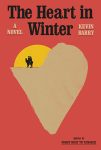
Review by Kevin Brown
Victim, Andrew Boryga’s debut novel, tells the story of Javi, a Puerto Rican living in the Bronx. He does well in school and, through a meeting with a college counselor who’s volunteering at his school, ends up at an elite college, unlike his best friend, Gio, whose life takes a different path. Through that meeting with the counselor, Javi’s life seems to follow a traditional path toward the American success story, but Javi’s means of achieving what he seeks is complicated.
As the title conveys, Javi presents himself as a victim, whether of oppression or violence or racism, embellishing the stories he writes, first for his college newspaper, then for a national magazine. On the one hand, Boryga is satirizing the cult of victimhood, the approach that argues that one should use their stories to evoke pity as a means of accomplishing some goal. However, the ideas that Javi learns in college about systemic racism and other forms of oppression are true, as readers can see in Javi and Gio’s lives.
Javi’s problem isn’t that he doesn’t struggle with real suffering; it’s that he seeks the approval of others, especially via social media, so much that he’s willing to do whatever it takes to obtain that approval. He doesn’t care about the problems he details in his writing; he only cares about himself. His audience is also partly responsible, as the more his stories follow the expected arc of racial and class progress and success, as long as they fit the narrative his audience already believes, the more successful he becomes. Boryga reminds his audience that stories are more complicated than they seem and where the problem lies isn’t as obvious as one might think.
Victim by Andrew Boryga. Doubleday, March 2024.
Reviewer bio: Kevin Brown has published three books of poetry: Liturgical Calendar: Poems (Wipf and Stock); A Lexicon of Lost Words (winner of the Violet Reed Haas Prize for Poetry, Snake Nation Press); and Exit Lines (Plain View Press). He also has a memoir, Another Way: Finding Faith, Then Finding It Again, and a book of scholarship, They Love to Tell the Stories: Five Contemporary Novelists Take on the Gospels. Twitter @kevinbrownwrites





